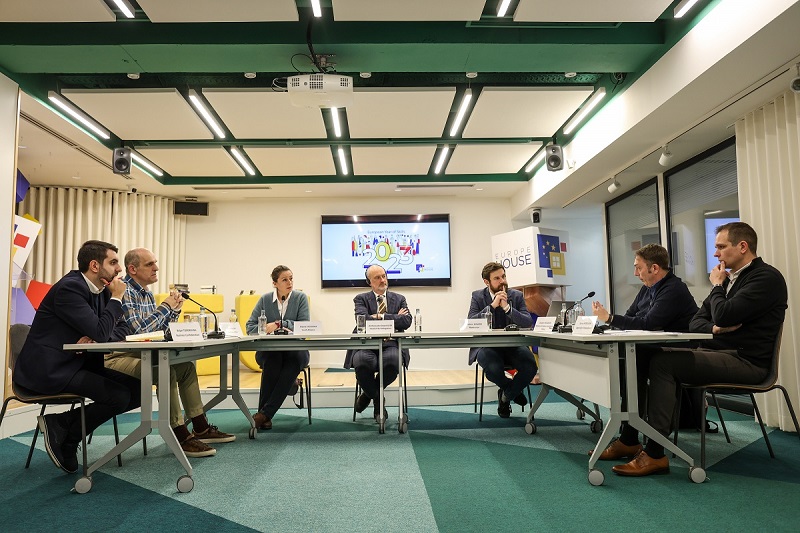The skills of young people in Macedonia are ten times lower compared to the figures in the countries of the European Union. This is indicated in the Progress Report, said Blazen Maleski from the Regional Office for Youth Cooperation RIKO, who was the moderator of the debate held at Europe House Skopje on the topic “Abilities of young people and the needs of the market: What skills are necessary”, as the first of the discussions within the framework of the European Year of Skills.
What do young people need to be competitive in the labor market? What is the state doing in this field, and what data from the field do non-governmental organizations and the civil sector bring?
The debate was opened by European Ambassador David Geer, and Mladen Frckovski from the Ministry of Labor and Social Policy, Goran Petrovski from the Employment Agency, Bojan Todorovski from the Business Confederation, Biljana Stojceska from the Youth Union from Krusevo and Zoran Ilieski from the Coalition of youth organizations NOW took part in the discussion.
According to the Progress Report, 80 percent of the long-term unemployed do not have sufficiently developed skills and this is a consequence of unemployment. Frckovski explained that the operational plan for 2023 is nearing its end, and pilot measures are also being introduced in the employment measures. The annual reports of the Employment Agency showed that more than 60 percent of job seekers have at least completed primary or incomplete secondary education. After a series of conversations with chambers of commerce and technological-industrial development zones, they all received the same message:
Education is not important to them, what is important is that they need workers – now. So we have a workforce of about 80,000 workers that member companies of the chambers of commerce can hire. That’s why we defined in the training that they can also be people with completed primary education. We receive data from social work centers, people receive psychological-social and mentoring support, then they are redirected to the services section where an individual employment plan is drawn up, Frckovski explained.
According to him, it is extremely important that 33 million euros have been set aside for employment measures this year, while up to ten years ago they were budgeted with 8 million euros. He said that cooperation with the non-governmental sector is excellent and together they create laws and strategies for youth policies.






Comments are closed for this post.